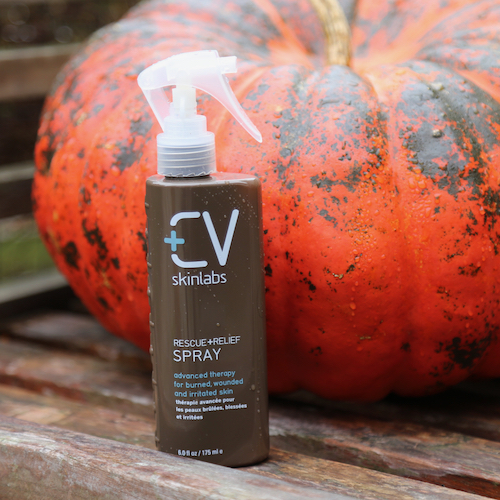
How do you reduce stress over the holidays?
There are a lot of options, but here’s one you may not have thought of: start a daily gratitude practice.
Many Americans Want to Reduce Stress During the Holidays
Several surveys show how much stress Americans suffer over the holiday season. A 2021 poll conducted by Morning Consult on behalf of the American Psychiatric Association (APA) showed that Americans are five times more likely to say their level of stress increases rather than decreases during the holidays.
Top concerns included:
- finding and affording gifts
- worries about having to work long hours over the holiday season
- concern about getting sick (particularly with COVID-19 in 2021
- anxiety over family gatherings
Another 2021 survey from health marketplace Sesame found similar results—three in five also said their mental health was negatively impacted by the holidays, with 60 percent reporting increased anxiety and 52 percent reporting increased depression.
Reduce Stress During the Holidays: Typical Coping Mechanisms
You’ve likely heard about some of the common recommendations for dealing with holiday stress. They include:
- Be realistic: Don’t expect the holidays to be perfect. Try to be flexible and manage your expectations so that you can enjoy yourself no matter what happens.
- Take care of yourself: Don’t neglect yourself during this busy time. Try to stick with your exercise routine and continue to eat a healthy diet the majority of the time. Go to bed and get up at the same time as well so you can get your 7-8 hours of sleep.
- Say no: Stress often results from making too many holiday commitments. Be very particular about those you agree to, and don’t be afraid to say “no” to the rest.
- Set a budget: Financial stresses are real during the holidays. Set a budget and stick to it. Consider handmade or second-hand gifts where they may be appreciated or appropriate.
- Create relaxing surroundings: Use calming music, candles, lights, open windows, and aromatherapy to create a calm, relaxing atmosphere in your home and workplace.
Reduce Stress During the Holidays: Try Gratitude
Another good way to cope with holiday stress is to start a daily gratitude practice.
According to research, participants who practice gratitude experience reduced levels of cortisol, the stress hormone. They also tend to have stronger heart function and to be more resilient to emotional setbacks and negative experiences.
Research also shows that gratitude reduces toxic emotions like anger and irritation. It helps us to sleep better because it tames those racing thoughts we often have before bed. It can even strengthen the immune system, which can help us stay well over the holiday season.
Some research connects gratitude with a higher volume of grey matter in the brain—in other words, it may make you smarter!
Gratitude Can Even Benefit Your Skin!
The studies we’ve been particularly excited about are those that show gratitude can help improve the condition of your skin.
In a 2021 study, scientists found that feelings of thankfulness may reduce inflammation, which is a key factor in creating skin problems like dryness, acne, eczema and rosacea flare-ups, and dullness.
Gratitude reduces stress too, and we know there is a direct relationship between stress and the onset of aggravation of many skin diseases like eczema and psoriasis. It also helps you sleep better, which helps improve skin repair.
Gratitude Exercises to Reduce Stress During the Holidays
If you want an effective way to cope with stress this holiday, incorporating a gratitude practice in your routine may be one of the best things you can do. If you’re not sure how to get started, try these exercises.
Start a Gratitude List or Journal
Every morning, evening, or whenever you can carve out 5-10 minutes, write a list of the top five things you’re grateful for that day. It could be as simple as “being alive,” “having enough food to eat,” or “having a nice place to live.”
As an alternative, take 5-10 minutes to journal about those things you are grateful for. Maybe your daughter hugged you that day, or you got a pat on the back at work. Remember to be thankful for the simple things.
Create a Gratitude Jar
This is a good way to get the entire family involved in a gratitude practice. Have everyone write down one thing they’re grateful for each day and then drop the paper in a gratitude jar.
Then gather over a meal or at the end of the day and pull the papers out of the jar. They are likely to spark positive conversations that help you all to relieve some stress.
Find a Gratitude Rock
This is all about reminding yourself to be grateful throughout the day. Find a rock or stone that you like—one that speaks to your personality somehow. Then keep it with you throughout the holidays. You can even make it into a piece of jewelry if you like.
Every time you clutch it in your hand or see it on your desk or table, pause to think about at least one thing you’re grateful for. It can be as simple as the sun shining down on you at that moment.
Use a White Board
This is another good family activity. Put a whiteboard up in your home somewhere everyone can see it. Then every day, write one of the following prompts (and any others you can create yourself) at the top of the board, and encourage family members to respond.
- I’m grateful for these three things I hear:
- I’m grateful for these three blue things:
- I’m grateful for these three friends:
- I’m grateful for these family members:
- I’m grateful for these three things in my home:
- I’m grateful for these three books:
Write a Letter or Email
This can be a very powerful gratitude exercise. Write a letter or email to someone you’re grateful to have in your life. Explain why you are grateful for them and thank them for who they are. Then mail or send the letter. This activity was found in studies to enhance levels of life satisfaction and happiness.
Be Grateful for Yourself!
We are often our own worst critics. You can boost your self esteem and energy by taking a moment to write down those things you appreciate about yourself. It may feel strange at first, but give it a try.
All you have to do is along with your regular gratitude list, write down at least two things that you appreciate about yourself. Maybe you are glad that you are a hard-working person, or that you have a big heart. Maybe you are grateful that you were patient with your child today, or that you pushed yourself to exercise when you didn’t really feel like it.
We Are Grateful for You!
As part of this post, we want to express our gratitude for you, our customers! Many of you have shared your stories of how our products have helped heal, repair, and restore radiance to your skin.
Please know that we appreciate your support. Without you, we wouldn’t be able to do what we do!
How do you cope with holiday stress?



